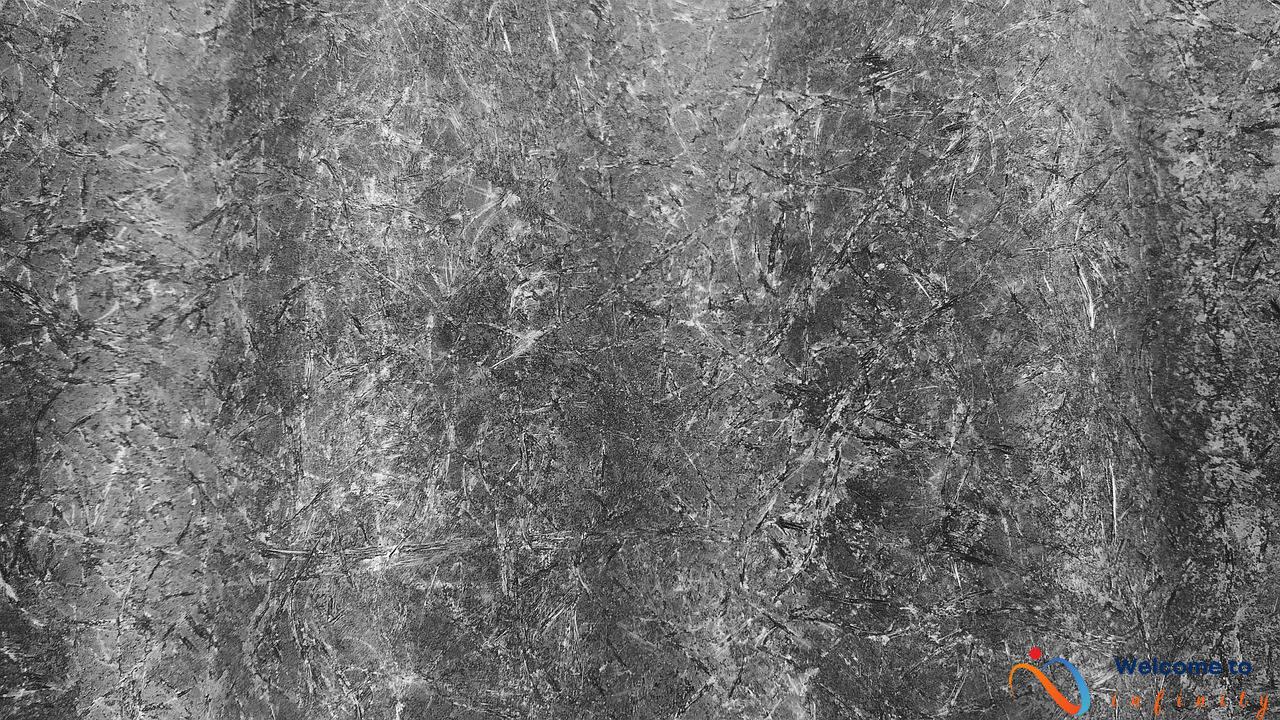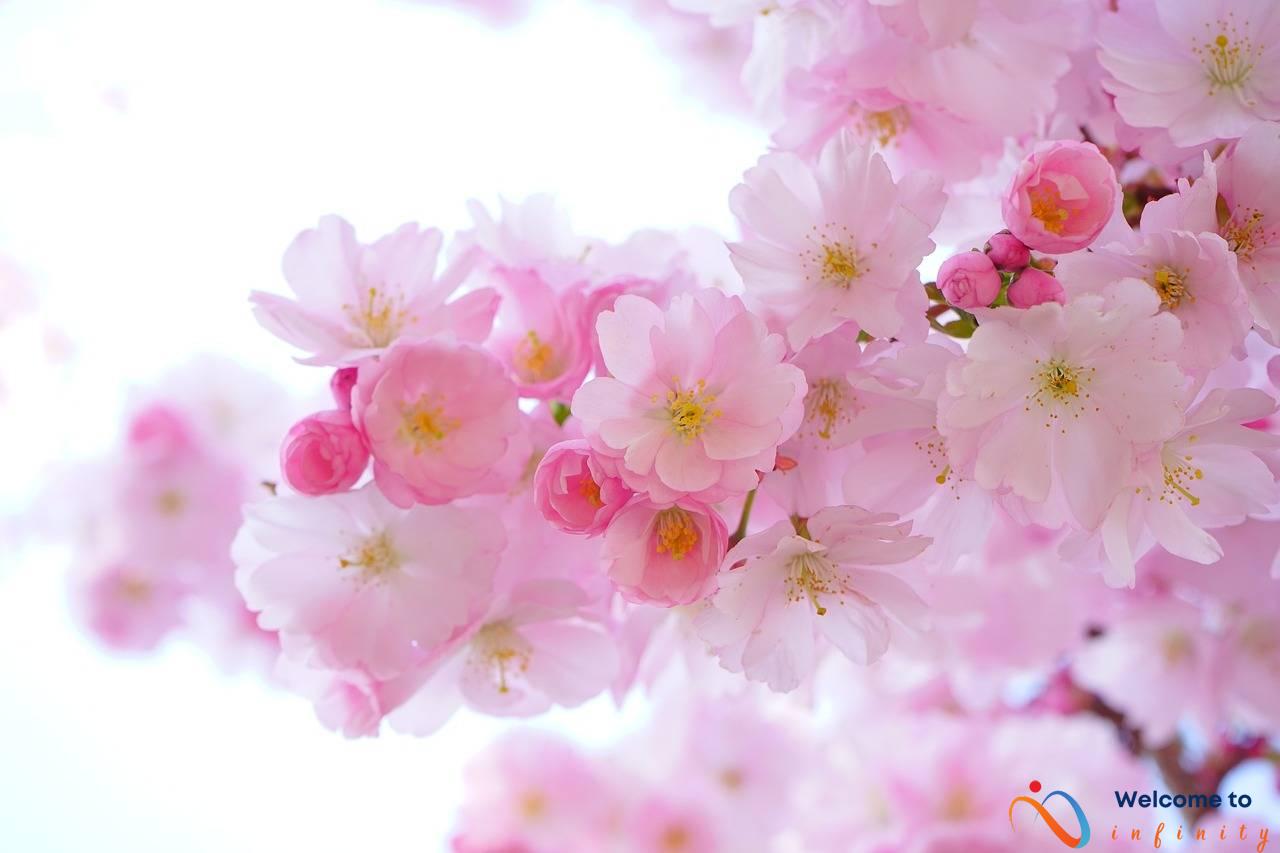Dandruff is a scalp condition that affects people of all ages and can cause embarrassment due to the flakes that appear on the hair and clothes. It is caused by an overgrowth of yeast on the scalp, which can lead to flaking and irritation. However, there are natural ways to control and treat dandruff without resorting to chemical products.
The good news is that natural remedies for dandruff control are effective and have no side effects. In addition, maintaining good hair hygiene and following a healthy lifestyle can help prevent dandruff from recurring and promote scalp health and hair growth.
There are several natural remedies available for treating dandruff, including tea tree oil, aloe vera, apple cider vinegar, and coconut oil. Tea tree oil has antifungal and antibacterial properties that can help prevent dandruff and reduce scalp irritation. Applying a few drops of tea tree oil to your shampoo or using it as a carrier oil can help control dandruff and promote hair growth.
Aloe vera is another natural remedy for dandruff control. It has antimicrobial properties that can soothe and moisturize the scalp, reducing dandruff and promoting hair health. Applying fresh aloe vera gel or juice directly on the scalp or combining it with your shampoo can be effective in controlling dandruff.
Apple cider vinegar is also an excellent natural remedy for dandruff control. Its acidity helps regulate the growth of yeast on the scalp, which causes dandruff. Diluting apple cider vinegar with water and using it as a rinse after shampooing can help balance the pH levels of the scalp and prevent dandruff.
Coconut oil is another natural remedy that can help moisturize the scalp and prevent dryness that often leads to dandruff. Applying warm coconut oil to the scalp and hair and leaving it on overnight can help control dandruff and promote hair growth. Coconut oil can also prevent hair damage, reduce split ends and frizz, and improve hair texture.
Maintaining a healthy lifestyle that includes eating a balanced diet rich in omega-3 fatty acids, zinc, and B vitamins can help reduce dandruff and promote scalp health. In addition, managing stress levels, avoiding harsh chemicals and styling products, and maintaining good hair hygiene can also have a positive impact on dandruff control.
Understanding Dandruff
Dandruff is a common scalp condition that affects many people worldwide. It is caused by an overgrowth of yeast on the scalp, which leads to scalp irritation and flaking. Dandruff can be caused by several factors, including dry scalp, skin sensitivity to hair care products, and stress.
Symptoms of dandruff include flakes on the scalp, hair, and shoulders, an itchy and irritated scalp, and redness on the scalp. Sometimes dandruff can be confused with other conditions such as psoriasis or eczema, so it is essential to consult a dermatologist if there is any confusion about the diagnosis.
Understanding the causes and symptoms of dandruff is instrumental in treating it naturally. Natural remedies such as tea tree oil, aloe vera, apple cider vinegar, and coconut oil can help control dandruff and promote healthy hair. Moreover, making some lifestyle changes such as maintaining a healthy diet, managing stress, and avoiding harsh chemicals and styling products can also reduce dandruff and promote scalp health.
Natural Remedies
If you are looking for natural remedies to control and prevent dandruff, then you are in luck. There are a number of natural remedies for dandruff that can help to moisturize your scalp and promote healthy hair growth.
The most effective natural remedies for dandruff include tea tree oil, aloe vera, apple cider vinegar, and coconut oil. These remedies have anti-fungal and anti-bacterial properties that are effective at controlling the growth of yeast on the scalp that can lead to dandruff.
Tea tree oil is one of the most popular natural remedies for dandruff. Applying a few drops of tea tree oil to your shampoo or using it as a carrier oil can help to alleviate the symptoms of dandruff and promote a healthy scalp. Aloe vera is another powerful natural remedy that can help to soothe and moisturize the scalp. You can use fresh aloe vera gel or juice directly on the scalp or mix it with your shampoo for best results.
Apple cider vinegar is another great natural remedy for dandruff. Its acidic properties can help to control the growth of yeast on the scalp while at the same time balancing the pH level of the scalp. To use, simply dilute apple cider vinegar with water and rinse your hair with it after shampooing.
Finally, coconut oil is another excellent natural remedy that can be used to moisturize the scalp and prevent dryness, which is often one of the causes of dandruff. It also has anti-inflammatory properties that help to reduce scalp irritation and redness. Warm up the coconut oil and apply it to your scalp and hair at night before going to bed for best results.
Using these natural remedies regularly can help you control and prevent dandruff while at the same time promoting healthy hair growth. Give them a try and see the difference they can make in your hair care routine.
Tea Tree Oil
Tea tree oil has been used for centuries for its antifungal and antibacterial properties, and it is an effective natural remedy for dandruff. The oil can combat the yeast responsible for dandruff and reduce inflammation and itchiness of the scalp, leaving it healthy and moisturized.
To use tea tree oil to treat dandruff, mix a few drops of the oil with your shampoo or carrier oil and massage it into your scalp. Leave it on for a few minutes before rinsing it off. Repeat this process regularly to prevent dandruff and promote hair health.
Using tea tree oil as a natural remedy for dandruff also has other benefits. It can help reduce scalp itchiness and inflammation and promote hair growth. Tea tree oil can also be combined with other natural ingredients, such as aloe vera and coconut oil, for added benefits.
| Benefits of Tea Tree Oil for Hair and Scalp |
|---|
| Antifungal and antibacterial properties |
| Reduces inflammation and itchiness |
| Promotes hair growth |
| Moisturizes and soothes the scalp |
When using tea tree oil, it is essential to use it in the right proportion. A concentrated solution can cause irritation and allergic reactions, so always dilute it with a carrier oil, such as coconut oil or olive oil. Also, avoid applying tea tree oil directly to the scalp as doing so can cause an adverse reaction.
Tea tree oil is a natural, safe, and effective way to get rid of dandruff while promoting hair health.
Suggested Content:
Tea tree oil has numerous benefits for scalp and hair health. In addition to combating dandruff-causing bacteria and fungus, it can also help reduce inflammation and itching on the scalp. This is because tea tree oil has anti-inflammatory properties that can soothe irritated skin and reduce redness.
Furthermore, using tea tree oil regularly can also promote hair growth by improving blood circulation to the scalp. This can help increase the flow of nutrients to the hair follicles, which in turn can strengthen the hair and promote healthy growth.
- To use tea tree oil for scalp health, mix a few drops of the oil with a carrier oil like coconut oil or olive oil and apply it to your scalp before shampooing. Massage the oil into your scalp for a few minutes and then rinse it off with warm water. You can also add a few drops of tea tree oil to your regular shampoo to get its benefits.
- It is important to note that tea tree oil should always be used in diluted form, as it can be harsh on the skin if used undiluted.
Overall, tea tree oil is a natural and effective way to promote scalp and hair health while also addressing dandruff issues.
Aloe Vera
Aloe vera is a succulent plant that has been used for centuries for its medicinal properties. Aloe vera has antimicrobial properties that can help soothe and moisturize the scalp, reducing dandruff and promoting hair health. It also contains enzymes that can help remove dead skin cells and excess oil from the scalp, which are often the main reasons for dandruff.
Using fresh aloe vera gel or juice directly on the scalp can be very effective in treating dandruff. To use the gel, cut a leaf from the aloe vera plant and slice it open. Scoop the gel out of the leaf and massage it into the scalp, focusing on areas where dandruff is most prevalent. Leave the gel on for 15-20 minutes before washing it off with a gentle shampoo.
You can also mix aloe vera gel with your shampoo to make it more effective in treating dandruff. To do this, add 2-3 tablespoons of aloe vera gel to the shampoo bottle and give it a good shake before using it.
- Moisturizes the scalp
- Reduces dandruff
- Reduces inflammation
- Restores the scalp's pH level
- Improves hair texture and shine
Apart from treating dandruff, aloe vera can also promote overall scalp health and improve hair growth. It can also help restore the scalp's pH levels, which can reduce hair breakage and improve shine. Incorporating aloe vera into your hair care routine can help promote healthy, dandruff-free hair.
Suggested Content:
If you're struggling with damaged hair, aloe vera may be the solution you're looking for. Not only can it help reduce dandruff, but its antimicrobial properties can also help restore your scalp's pH levels, reducing hair breakage and promoting shine.
Using fresh aloe vera gel directly on the scalp or mixing it with your shampoo can be an effective treatment. To get the most out of aloe vera, consider trying a hair mask. Mix equal parts aloe vera gel and coconut oil and leave it on your scalp and hair for an hour before washing it off. This will help moisturize and strengthen your hair, leaving it feeling healthier and more manageable.
When using aloe vera on your hair, make sure you're using 100% natural aloe vera gel or juice. Avoid any products that contain artificial ingredients, as these can be harmful to your hair and scalp. You can easily find aloe vera products at your local health food store or online.
In addition to using aloe vera, it's important to maintain a healthy diet and avoid harsh chemicals and styling products. By taking a holistic approach to your hair care routine, you can reduce dandruff, promote hair health, and get the luscious locks you deserve.
Apple Cider Vinegar
Apple cider vinegar is a natural remedy that has been used for centuries to treat various health issues, including dandruff. The acidity in apple cider vinegar can help control the growth of yeast on the scalp, reducing dandruff. When used in the right way, it can effectively balance the scalp's pH levels and prevent dandruff.
To use apple cider vinegar as a rinse, dilute it with water in a 1:1 ratio. After shampooing your hair, pour the diluted apple cider vinegar over your scalp and massage it gently. Let it sit for a few minutes before rinsing it off with cool water. Repeat this process twice a week for best results.
It is important to note that undiluted apple cider vinegar can be too strong for the scalp and may cause irritation. Always dilute it before using it on the scalp. Additionally, if you have sensitive skin, do a patch test before using apple cider vinegar on your scalp.
- Benefits:
- Controls yeast growth on the scalp
- Reduces dandruff and balances scalp pH levels
- Strengthens hair, reduces hair loss, and improves shine
- Tips:
- Use diluted apple cider vinegar as a rinse after shampooing
- Always dilute apple cider vinegar before using it on the scalp
- Do a patch test before using apple cider vinegar on the scalp, especially if you have sensitive skin
Using apple cider vinegar as a natural remedy for dandruff is an easy and affordable way to keep your scalp healthy and dandruff-free. By balancing the scalp's pH levels and controlling the growth of yeast, apple cider vinegar can help promote healthy hair and scalp.
Suggested Content:
Apple cider vinegar is not only effective in treating dandruff but also in improving hair health. Regular use of apple cider vinegar can strengthen hair, reducing hair loss, and improve shine. The acidity in apple cider vinegar helps to remove buildup from styling products and sweat, unclogs follicles, and stimulates circulation. This increased circulation helps to strengthen hair roots and promotes healthy growth.
In addition to this, apple cider vinegar has natural antibacterial and antifungal properties that can combat scalp infections and dandruff. Apple cider vinegar can also help to balance the scalp's pH levels, which is crucial for maintaining healthy hair. A balanced scalp pH can prevent breakage, retain moisture, and enhance elasticity.
If you want to experience the benefits of apple cider vinegar, you can use it as a hair rinse after shampooing. Simply dilute the apple cider vinegar with water and pour it over your hair. Massage your scalp gently and leave it on for a few minutes before rinsing it off with cool water. You can also use it as a leave-in treatment by diluting apple cider vinegar with water and spraying it on your hair. Leave it on overnight and wash off the next day.
Coconut Oil
Coconut oil is a versatile and natural remedy for various hair and skin conditions, including dandruff. It is a great natural conditioner that can penetrate deep into the hair shaft and scalp to moisturize and nourish them. Dandruff often results from a dry scalp, and using coconut oil can help prevent dryness and reduce dandruff.
When using coconut oil for dandruff treatment, it's best to apply warm oil on your scalp and hair and leave it overnight. This gives the oil enough time to do its job and penetrate the scalp and hair. To warm the coconut oil, scoop a few tablespoons (depending on your hair length and thickness) into a microwave-safe bowl and heat it for a few seconds until it's warm but not hot.
Once the coconut oil is warm, apply it to your scalp and hair, massaging it in gentle circular motions. Make sure to cover all areas and concentrate on specific areas that are prone to dandruff. Then, wrap your hair in a shower cap or towel and leave the oil on your hair and scalp overnight. In the morning, wash your hair with a gentle shampoo to remove the oil, and style as usual.
Using coconut oil for dandruff treatment not only helps reduce dandruff but also promotes hair growth. Coconut oil contains medium-chain triglycerides that can penetrate the hair shaft and support its growth. It can also reduce hair breakage, split ends, and frizz, leaving your hair soft, shiny, and healthy.
In addition to using coconut oil, incorporating other lifestyle changes, such as eating a balanced diet, managing stress, and avoiding harsh chemicals, can help reduce dandruff and promote healthy hair.
Suggested Content:
Coconut oil is not only effective in reducing dandruff, but it also offers several benefits to hair health. Applying warm coconut oil on the scalp and hair can help prevent hair damage and reduce split ends and frizz. The oil's natural conditioning properties can also improve hair texture, making it smoother and shinier.
In addition to using coconut oil as a hair mask, you can also use it as a leave-in conditioner. Applying a small amount of oil on damp hair can help detangle it and prevent breakage when styling. Coconut oil can also act as a natural protectant against the sun's harmful UV rays.
If you have oily hair, you may be hesitant about using coconut oil. However, using it sparingly and focusing on the ends of your hair can prevent your scalp from becoming greasy. You can also mix coconut oil with other natural ingredients such as honey or avocado to create a nourishing hair mask.
Overall, incorporating coconut oil into your hair care routine can contribute to reducing dandruff, promoting healthy hair, and achieving a luxurious hair texture.
Lifestyle Changes
If you want to get rid of dandruff naturally, you will need to make some lifestyle changes to help reduce the symptoms and prevent recurrence. Here are some simple changes you can make:
Eating a balanced diet that includes foods rich in vitamins and minerals is essential in improving scalp health and reducing dandruff. It is important to consume foods rich in omega-3 fatty acids, zinc, and B vitamins. Some foods that can promote scalp health include salmon, nuts, eggs, leafy greens, and whole grains. Incorporating these foods into your diet can help you maintain healthy hair and prevent dandruff.
Stress plays a significant role in scalp conditions like dandruff. Practicing relaxation techniques such as yoga, meditation, and breathing exercises can help you to manage stress, reduce dandruff, and improve overall health. Regular exercise, good sleep hygiene, and positive affirmations can also aid in stress management and reduce the symptoms of dandruff.
Harsh chemicals and styling products can contribute to scalp irritation and trigger dandruff. Choosing gentle and natural hair care products, avoiding excessive heat styling, and limiting the use of styling products can promote scalp health and reduce dandruff. Reading product labels, avoiding sulfates and parabens, and using natural alternatives like shea butter and argan oil can also protect the hair and scalp from damage.
By making simple lifestyle changes and following natural remedies, you can effectively get rid of dandruff and maintain healthy hair. Natural remedies and lifestyle changes work together to prevent the recurrence of dandruff while boosting overall hair health.
Healthy Diet
When it comes to treating dandruff naturally, it's not just about what you apply to your scalp, but also what you put into your body. Maintaining a healthy diet that includes foods rich in vitamins and minerals can help improve scalp health and reduce dandruff. Here are some nutrients to look out for:
| Nutrient | Food Sources |
|---|---|
| Omega-3 Fatty Acids | Salmon, sardines, walnuts, flaxseeds, chia seeds |
| Zinc | Pumpkin seeds, lentils, chickpeas, beef, oysters |
| B Vitamins | Eggs, leafy greens, whole grains, almonds, avocado |
Including these foods in your diet can help nourish your scalp and reduce the likelihood of dandruff. Omega-3 fatty acids, for example, have anti-inflammatory properties that can help soothe an irritated scalp. Zinc plays a role in regulating sebum production, which can prevent dryness and flakes. B vitamins, especially biotin, are essential for healthy hair and can help strengthen hair follicles, reducing hair fall.
In addition to these specific nutrients, it's important to eat a balanced diet that includes plenty of fruits, vegetables, and whole foods. Avoiding sugary or processed foods can also help reduce inflammation in the body, which can contribute to scalp conditions like dandruff. Staying hydrated by drinking plenty of water is also key for maintaining healthy skin and scalp.
By making dietary changes and focusing on nutrient-rich foods, you can support your scalp health and reduce dandruff naturally.
Suggested Content:
When it comes to promoting scalp health and reducing dandruff, a healthy diet plays a crucial role. Including foods that are rich in vitamins, minerals, and essential fatty acids can nourish the scalp and promote healthy hair growth. Here are a few foods that you should consider including in your diet:
- Salmon: This fatty fish is an excellent source of omega-3 fatty acids, which can reduce inflammation and dryness on the scalp and prevent dandruff. It is also rich in vitamin D and B12, which are crucial for maintaining healthy hair.
- Nuts: Nuts are a great source of zinc, which is essential for scalp health and can improve circulation and reduce itching. They also contain healthy fats that can prevent dryness and flakiness on the scalp.
- Eggs: Eggs are an excellent source of protein, which is essential for healthy hair growth. They also contain B vitamins that can nourish the scalp and prevent dandruff.
- Leafy greens: Dark leafy greens like spinach and kale are rich in vitamins A and C, which can help to regulate sebum production and reduce dryness on the scalp. They are also a good source of iron, which can prevent hair loss and promote healthy growth.
- Whole grains: Whole grains like quinoa and brown rice are rich in B vitamins and zinc, which can improve scalp health and reduce dandruff. They are also a great source of fiber, which can promote healthy digestion and improve overall health.
By incorporating these foods into your diet, you can help to promote scalp health and reduce dandruff naturally. However, it is important to remember that a healthy diet is just one part of a holistic approach to treating dandruff. Using natural remedies, making lifestyle changes, and avoiding harsh chemicals and styling products can all work together to help control dandruff and promote healthy hair.
Stress Management
Stress can have a major impact on your scalp health and can contribute to various scalp conditions, including dandruff. When you are stressed, your body releases more cortisol, a hormone that can lead to inflammation, itching, and flaking of the scalp.
To manage stress, consider practicing relaxation techniques, such as meditation and yoga. These techniques can help slow down your thought process and calm your mind, reducing stress and anxiety and improving overall wellbeing.
Other ways to manage stress include regular exercise, good sleep hygiene, and positive affirmations. Exercise helps release endorphins, the body's natural mood-boosters, which can help reduce stress and improve overall health. Ensuring that you get sufficient sleep, preferably seven to eight hours a night, can also help reduce stress levels.
In addition, using positive affirmations can help change negative thought patterns and create a more positive outlook. You can repeat positive statements to yourself, such as “I am calm and relaxed” or “I am in control of my thoughts and emotions.”
By managing stress and making healthy lifestyle choices, you can reduce dandruff and promote scalp health.
Suggested Content:
Stress is a common cause of dandruff, and managing it can help reduce symptoms and improve overall health. Regular exercise is a great way to manage stress and promote physical and mental health. Aim for at least 30 minutes of physical activity five times a week, such as walking, running, or cycling. Exercise can also increase blood flow to the scalp, promoting hair growth.
Good sleep hygiene is also important for managing stress and reducing dandruff. Getting enough sleep is crucial for maintaining a healthy body and mind. Aim for seven to eight hours of sleep each night and establish a consistent sleep routine. Avoid caffeine, alcohol, and electronics before bedtime as these can interfere with sleep quality.
Positive affirmations can help manage stress and promote self-esteem. Practice positive self-talk each day, such as repeating affirmations like “I am confident and capable” or “I am in control of my thoughts and emotions”. This can help reduce stress and improve overall well-being.
Avoiding Harsh Chemicals and Styling Products
When it comes to hair care products, not all are created equal. Many commercial shampoos and styling products contain harsh chemicals that can strip the scalp of its natural oils and irritate the skin, leading to dandruff. To avoid exacerbating your scalp condition, it's important to choose gentle and natural hair care products.
One way to identify gentle products is to read the labels. Look for shampoos and conditioners that are sulfate-free, paraben-free, and contain natural ingredients like tea tree oil, aloe vera, and coconut oil. These ingredients have antimicrobial and moisturizing properties that can help soothe the scalp and reduce dandruff.
In addition to choosing gentle products, it's important to avoid excessive heat styling. Heat can damage the hair and dry out the scalp, which can lead to dandruff. If you must heat style your hair, use a heat protectant spray and avoid using high temperatures.
- Read product labels to identify gentle and natural hair care products
- Avoid products that contain harsh chemicals like sulfates and parabens
- Look for products with natural ingredients like tea tree oil, aloe vera, and coconut oil
- Avoid excessive heat styling and use a heat protectant spray if necessary
Suggested Content:
When choosing hair care products, it is important to read the labels and avoid ingredients that can damage the hair and scalp. Sulfates and parabens are two common chemicals found in many shampoos and conditioners that can strip the hair of its natural oils and cause irritation to the scalp. Natural alternatives, such as shea butter and argan oil, can be used instead of harsh chemical products.
Shea butter is a natural moisturizer that can promote hair growth, reduce dandruff, and protect the hair from damage caused by styling tools. It contains fatty acids and vitamins that can nourish the hair and scalp, improving hair elasticity and strengthening the hair follicles. Argan oil is also a natural alternative that can hydrate the hair and scalp, reduce frizz, and prevent hair breakage. It contains antioxidants and fatty acids that can improve hair texture, making it softer and shinier.
- Reading product labels carefully
- Avoiding sulfates and parabens
- Using natural hair care products
- Incorporating shea butter and argan oil into hair care routine
Making small changes to your hair care routine can make a big difference in the health of your hair and scalp. By using natural alternatives and avoiding harsh chemicals and styling products, you can protect your hair from damage and promote healthy hair growth.












